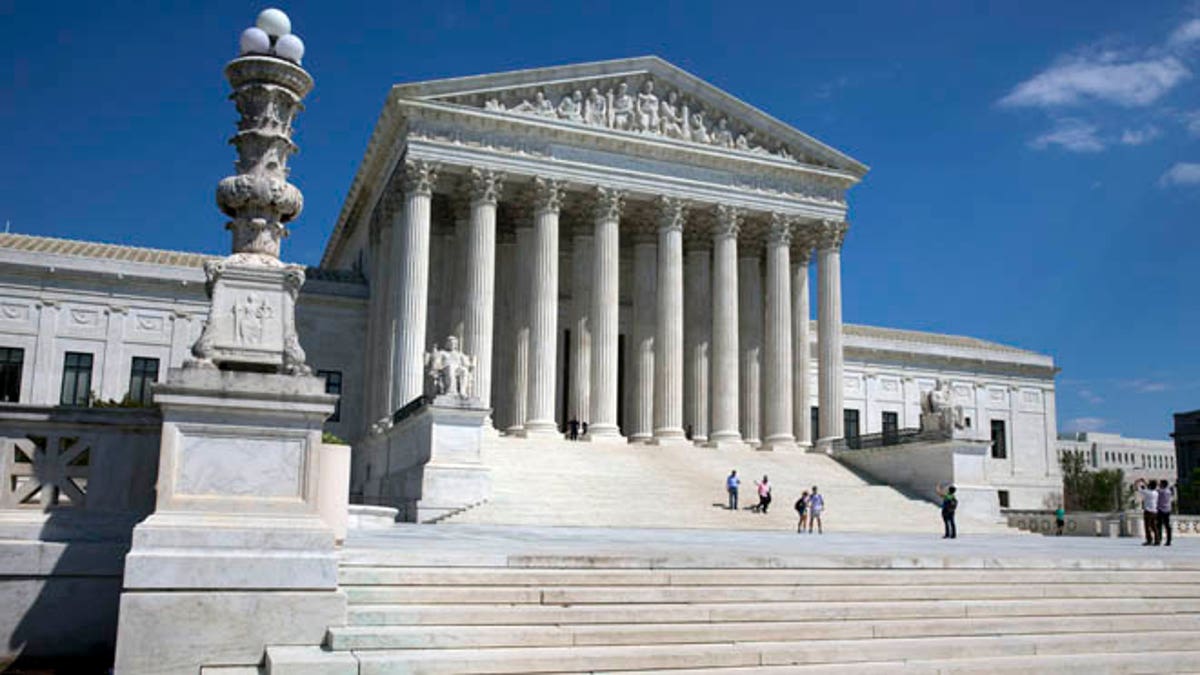
April 26, 2014: People walk on the steps of the U.S. Supreme Court in Washington. (AP)
The Supreme Court has upheld the right of local officials to open town council meetings with prayer, ruling that this does not violate the Constitution even if the prayers routinely stress Christianity.
The court said in a 5-4 decision Monday that the content of the prayers is not critical as long as officials make a good-faith effort at inclusion.
The ruling was a victory for the town of Greece, N.Y., outside of Rochester.
"The prayer opportunity in this case must be evaluated against the backdrop of historical practice," the majority wrote in its opinion. "As a practice that has long endured, legislative prayer has become part of our heritage and tradition, part of our expressive idiom, similar to the Pledge of Allegiance, inaugural prayer, or the recitation of 'God save the United States and this honorable Court' at the opening of this Court's sessions."
The majority justices further argued that the intended audience is not "the public, but lawmakers themselves."
In 1983, the court upheld an opening prayer in the Nebraska Legislature and said that prayer is part of the nation's fabric, not a violation of the First Amendment. Monday's ruling was consistent with the earlier one.
Justice Anthony Kennedy, writing for the majority, said the prayers are ceremonial and in keeping with the nation's traditions.
"The inclusion of a brief, ceremonial prayer as part of a larger exercise in civic recognition suggests that its purpose and effect are to acknowledge religious leaders and the institutions they represent, rather than to exclude or coerce nonbelievers," Kennedy said.
The American Center for Law and Justice, which filed a brief in the case backing the town of Greece, applauded the decision.
"This is a sound decision that recognizes the significance of our nation's heritage and tradition," Jay Sekulow, chief counsel of the ACLJ, said in a statement.
But Justice Elena Kagan, in a dissent for the court's four liberal justices, said the case differs significantly from the 1983 decision because "Greece's town meetings involve participation by ordinary citizens, and the invocations given -- directly to those citizens -- were predominantly sectarian in content."
A federal appeals court in New York ruled that Greece violated the Constitution by opening nearly every meeting over an 11-year span with prayers that stressed Christianity.
The Associated Press contributed to this report.




